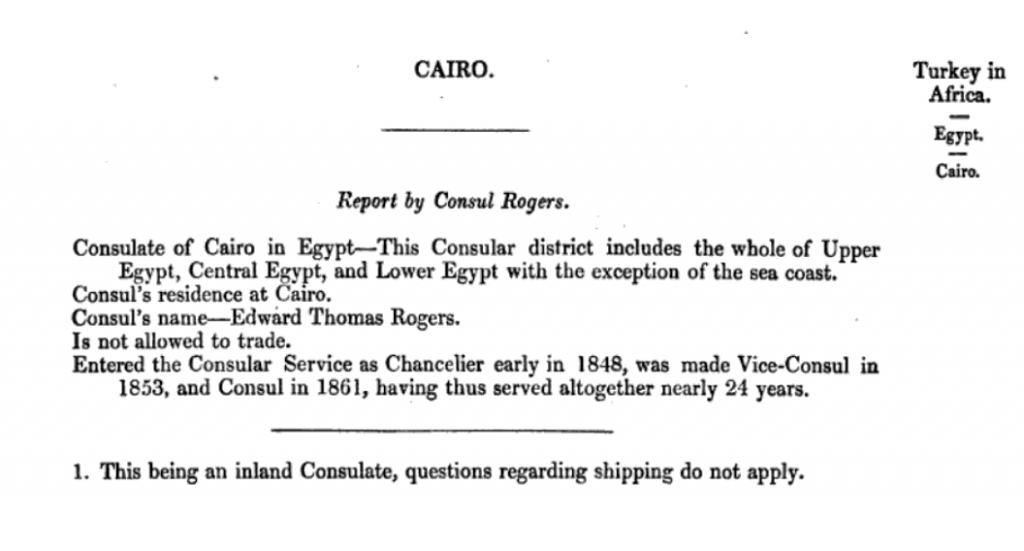Module: Edward Thomas Rogers
Rogers was a diplomat who served in various posts in different countries such as Jerusalem, Haifa, Beirut, Damascus and Cairo including the positions of Consul at Damascus, Consul-General in Syria, Consul in Cairo.

Read the following Athenaeum obituary from 1884:
ROGERS BEY
THE death of Rogers Bey at Cairo on Tuesday deprives Egyptian society of one of its most distinguished members. We believe it was during the Lebanon mission that Lord Dufferin’s appreciation of his remarkable linguistic powers and general ability secured Edward Thomas Rogers his first notable advance in the public service. He held successively the posts of British Consul at Damascus and Cairo, then became the Khedive’s representative in London, and subsequently served as Under Minister of Education, Inspector of Prisons, and Director of the Sale of State Lands under the Egyptian Government. He was an accomplished Arabic scholar, spoke and wrote most languages of the Levant, and possessed profound knowledge of Oriental, especially Mohammedan, antiquities and coins, of which he leaves a magnificent collection. His principal publications were valuable monographs on Egyptian heraldry and Arabic coins, the catalogue of his own cabinet of coins in the Numismatic Chronicle, contributions to the Asiatic Journal and the Bulletin of the Egyptian Institute. He also wrote an interesting account of Cairo and its mosques in the Art Journal. He was the heart and soul of the Commission for the Preservation of Monuments in Cairo, of which he presented a report to the Khedive only three weeks ago. He was much esteemed by the late and the present Khedive, received the rank of Bey and the Order of Osmanieh, and was helpful to other scholars. Arabic antiquities, libraries, collections, and monuments will suffer greatly by his death.
Athenæum, N° 2955, June 14th, 1884, p. 759
Since there is very little information about him, it is very important to reconstruct his working background in order to obtain knowledge about his acquisitions. Through your university account try to obtain access to a library catalogue which contains Athenaeum issues and search them for information about Rogers movements. Where and when did Rogers serve as a diplomat?


